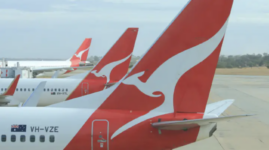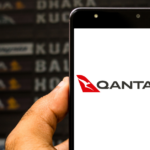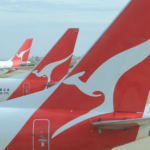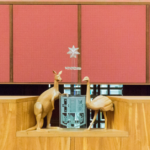We Don’t Sell Tickets! Qantas Files its Legal Defence

The media has had a field day this week with claims by Qantas that it doesn’t sell customers tickets to any particular flights, but rather a “bundle of rights” that includes alternative options in the event of cancellations.
The case against the airline brought by the Australian Competition and Consumer Commission (ACCC), alleging that Qantas engaged in false, misleading or deceptive conduct by advertising and selling tickets for more than 8,000 flights that it had already cancelled, is currently before the courts.
The Qantas defence
Qantas has rejected the allegations, claiming that sections of consumer law that the ACCC has accused it of breaching in relation to providing a service do not apply, because the airline did not supply customers with carriage on any “particular flight”, but rather “a bundle of contractual rights”, consistent with its “promise to do its best to get consumers where they want to be on time”.
While this might sound like a “war of words” to the ordinary observer, the airline further explained that its contracts with customers are for a “bundle of rights” which includes being rebooked on alternative options upon cancellation, but “expressly excludes any guarantee of flight times”.
The airline has also stressed that the terms and agreements are written in “prominent and plain English statements” at the time of booking and these expressly communicate “that flight times are not guaranteed and do not form part of the “contract of carriage”.
It is these nuances within the wording of the contacts, compared with what is explicitly required within the law, that the court now has to determine.
Consumer Law in Australia is contained in part in the Competition and Consumer Act 2010 which prohibits conduct in trade or commerce that is misleading or deceptive or likely to mislead or deceive.
This is a broad definition, but it applies to communications that occurs during the course of conducting business.
The ACCC has also accused Qantas of taking 18 days on average to notify ticket holders on more than 10,000 flights that their service had been cancelled.
In its defence to the allegations of long notification periods, Qantas has said that informing customers of the cancelled flights would have created “uncertainty and frustration” and overwhelmed its phone lines.
The impact of Covid-19
The flights at the centre of the case are dated between May and July 2022.
Qantas earlier claimed in the media, by way of an apology to customers, that at this time, the difficulties associated with re-starting of the airline industry post-Covid-19 was also affecting its ability to run ‘business operations as normal’ because of issues with staff shortages and supply chains issues coupled with a huge demand for flights after long periods of no-travel.
More recently the airline has admitted “it let customers down” and “mistakes were made” but it has also said the ACCC’s legal case “ignores the realities of the aviation industry”.
The ACCC has previously said that it would like to see Qantas face significant fines (which could be in the millions of dollars) in order to send a clear message to other corporations.
What is not clear at this stage is what will occur if there are Qantas customers who have suffered significant financial losses, even though the ACCC has acknowledged that “cancelled flights can result in significant financial, logistical and emotional impacts for consumers.”
None of this is new to most of us though – for years the energy sector, the airline industry, the insurance sector and the telecommunications industry are amongst those which have become increasingly complicated – not just in terms of their structures and ownership – but also in the fine print of their contracts for service and their day-to-day business operations and processes, which often means general ‘inaccessibility’ for customers.
Suffice to say, most of us would attest to the fact that it appears to be nothing out of the ordinary when large corporations deliver poor customer service so long as the profits remain steady and the shareholders stay happy.
Lost its shine
However, as the Qantas case continues to play out, one thing is clear – it will be particularly difficult for the airline to restore its reputation amongst Australians who have been complaining about the demise in customer service and the rise in airfare prices for some time, along with the complexities of the Frequent Flyer programme that in some cases make it virtually ‘unusable’ as well as the difficulties in accessing refunds and vouchers.
While the Australian Federal Government no longer has a financial stake in Qantas, it is still considered Australia’s main carrier, and ‘The Flying Kangaroo’ has long held sentimental value for Australians. At one point some years ago the airline had an impeccable record for both safety and customer service, and a solid standing as a good employer.
However, cut backs over the years have taken their toll on the company’s stature in the eyes of the public, and in many cases, amongst its peers in the industry.
Qantas was handed a significant bailout by the Federal Government during the pandemic when flights were grounded, and it has refused to pay back JobKeeper subsidies it accessed at the time, despite posting record profits last financial year.
New CEO, Vanessa Hudson has inherited what might be called a ‘bit of a mess’ at Qantas, with the company now negotiating with 1,700 workers who were alleged to have been unfairly dismissed in 2020.
She is now placating shareholders, staff and customers over the size of former CEO Alan Joyce’s final pay out, and has been left to deal with the serious allegations made by the ACCC.







